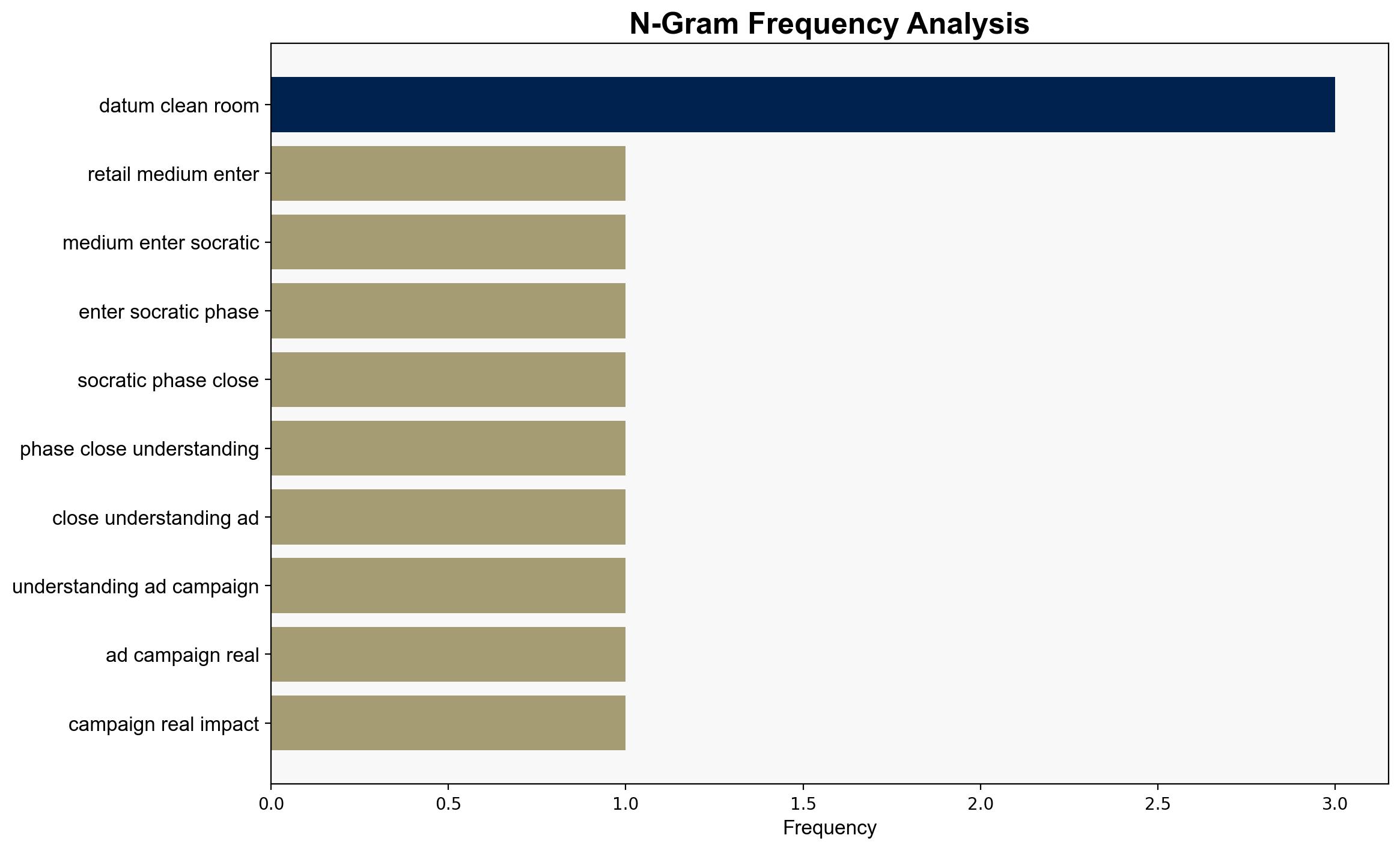Retail Media Is Starting To Come To Grips With The Fact That We All Know Nothing – AdExchanger
Published on: 2025-09-11
Intelligence Report: Retail Media Is Starting To Come To Grips With The Fact That We All Know Nothing – AdExchanger
1. BLUF (Bottom Line Up Front)
The retail media industry is grappling with the effectiveness and transparency of its advertising models. The most supported hypothesis suggests that current data-driven advertising strategies are fundamentally flawed due to reliance on incomplete and misleading metrics. Confidence Level: Moderate. Recommended action includes re-evaluating data collection and attribution models to enhance transparency and effectiveness.
2. Competing Hypotheses
Hypothesis 1: Retail media’s current data-driven strategies are ineffective due to reliance on flawed metrics and attribution models, leading to inaccurate assessments of campaign success.
Hypothesis 2: Retail media strategies are evolving, and current challenges are part of a transitional phase towards more accurate and effective data utilization, which will eventually resolve existing issues.
3. Key Assumptions and Red Flags
Assumptions:
– Hypothesis 1 assumes that current metrics like ROAS and attribution models are inherently flawed and cannot accurately measure campaign success.
– Hypothesis 2 assumes that ongoing technological advancements and industry adjustments will address current inefficiencies.
Red Flags:
– Over-reliance on self-attributed data from major platforms like Google and Amazon.
– Lack of transparency in data clean rooms and real-time bidding processes.
– Potential cognitive bias in assuming that technological advancements will automatically resolve current issues.
4. Implications and Strategic Risks
The current inefficiencies in retail media measurement could lead to significant financial losses for advertisers due to misallocated budgets. This may result in decreased trust in digital advertising platforms and a potential shift towards alternative marketing strategies. Additionally, reliance on flawed metrics could skew market competition, favoring platforms with more sophisticated data manipulation capabilities.
5. Recommendations and Outlook
- Recommendations: Conduct comprehensive audits of current data attribution models and metrics. Encourage industry-wide standards for transparency in data handling and reporting.
- Scenario-Based Projections:
- Best Case: Industry reforms lead to more accurate data utilization, enhancing campaign effectiveness and advertiser trust.
- Worst Case: Continued reliance on flawed metrics results in widespread financial losses and a shift away from digital advertising.
- Most Likely: Gradual improvements in data transparency and attribution models, with ongoing challenges in standardization.
6. Key Individuals and Entities
– Sunava Dutta
– Jared Belsky
– Abhi Jain
– Ram Singh
– Meghan Corroon
7. Thematic Tags
digital advertising, data transparency, retail media, attribution models, advertising metrics




